Regional Resilience Fellowship: Growing a Field of Practice Rooted in Place and Built in Collaboration
The Regional Resilience Fellowship is a year-long program designed to strengthen the work of community-rooted organizations and networks advancing resilience across food systems, ecological restoration, community wellness, and built environment. Fellows gain access to shared tools, technical assistance, and a global network of peers—all while helping shape a growing digital commons of place-based solutions.

Applications for the 2025 Cohort are Now Open!
We invite organizations and networks leading on-the-ground, locally led efforts to apply. Our second cohort will include 10 Fellows across diverse geographies, sectors, and organizational models. Each will receive tailored support and access to a peer learning cohort—all while co-developing tools, resources, and strategies to strengthen their impact and storytelling.
Ecological
Restoration
Food
Systems
Community
Wellness
Built
Environment

Why Join?
Grow Capacity: Receive dedicated technical assistance, training, and access to the Open Impact platform to strengthen your project management, measurement, and coordination
Learn & Collaborate: Participate in peer learning sessions, exchange best practices, co-develop tools with other regional practitioners, and contribute to a growing ecosystem of regenerative knowledge.
Tell Your Story: Refine how you share your impact through storytelling templates, impact dashboards, community engagement tools, and civic engagement campaigns.
Shape the Field: Help build a library of replicable, locally rooted solutions and resources that can inform other efforts around the world.

Who should apply?
We welcome applications from:
Networks or coalitions of local actors in a region or sector
Place-based hubs or service providers supporting multiple projects
Distributed organizations working with community-led initiatives
Regional anchors advancing shared infrastructure, knowledge, or resources
Fellows are expected to:
Be actively coordinating or implementing multiple projects or sites
Have team capacity to engage in the Fellowship and trainings
Demonstrate a readiness to document, scale, or replicate their practices
Have an interest in shared resources, peer learning, and storytelling
Be open to co-developing tools and contributing content to a shared platform
Be actively measuring impact or building a portfolio of impact efforts
-
Prospective fellows should meet 90% of the following:
Organizational Readiness
Operating or coordinating multiple active projects or sites
Bloom-stage (ready to grow and enhance) or Reseed-stage (ready to document and share)
Legal entity (or fiscal sponsorship) and basic operational infrastructure in place
Organizational capacity to dedicate a team member’s time to steward a workplan and participate in Fellowship-related activities
Coordination & Program Delivery
Has staff or capacity for community coordination and project management
Engaged in processes that could benefit from shared tools or improved workflows
Measurement, Reporting, & Verification (MRV)
Actively measuring and reporting on outcomes, or seeking support to do so
Interested in testing new peer validation or participatory MRV approaches
Facing unique measurement challenges (e.g., language, terrain, field specificity)
Learning, Templatization & Sharing
Willingness to engage in peer learning and knowledge exchange
Existing or emerging interest in documenting workflows, curricula, or practices
Capacity to contribute resources to a shared solutions library
Storytelling & Civic Public or Network Engagement
Actively documenting impact or interested in learning storytelling practices
Clear sense of audience or community to engage with
Interest in civic engagement, media, or campaign tools
Resourcing
Have some existing resourcing or a path to raise funding
Alignment with potential support from Open Future or partner funders
Annual budget and fundraising needs that support fellowship-level participation
Governance
Internal decision-making practices or pathways for shared governance
Experience or interest in participatory models
Selection Priorities
We will prioritize candidates who:
Add to regional, sectoral, and community diversity within the cohort
Advance equity and demonstrate resilience strategies at local community levels
Have operational and community management capacity to engage with the program
Are already measuring outcomes or interested in peer-based validation
Show readiness to templatize and share their practices and processes
Have storytelling skills or a strong desire to build them
Are actively working on resourcing pathways (such as regional portfolio creation, or fundraising for tool co-development)
Fellows are selected based on their alignment with our core criteria, including operational capacity, strong use cases for community coordination, and a spirit of collaborative learning.
-
Diversity of the Cohort: We aim for a diverse mix of geographies, sectors, project types, and communities served
Capacity to Engage: Applicants must demonstrate sufficient staffing or team bandwidth to participate fully, including trainings, workshops, and peer calls
Alignment with Program Goals: Fellows should be engaged in active work that aligns with core focus areas: food systems, ecological restoration, community wellness, or infrastructure
Tool Readiness: Strong candidates are actively seeking ways to improve coordination, measurement, or storytelling—and open to experimenting with shared tools
Contribution to the Commons: We look for participants who can share their practices, resources, or stories in ways that others in the field can learn from
Resourcing Pathways: We aim to support efforts where this Fellowship could help unlock further support—whether through exposure, capacity-building, or tool co-development
Values & Mindset: Collaboration, humility, and a willingness to build shared infrastructure are core to our work. We prioritize those excited to contribute to a larger field of practice.

Fellowship Includes:
Intro blurb tktktkt fellowship includes:
Access to Open Impact platform
An individualized workplan focused on goals and priorities
Onboarding, technical support & training
Peer learning workshops & cohort calls
Templates and toolkits for reporting & storytelling
Travel stipends for key convenings (where applicable)
Opportunities to shape new tools and shared infrastructure
Inclusion in a growing resource library of replicable practices
Visibility to a curated global ecosystem of practitioners, subject matter experts, service providers, & funders
Program Outcomes: Highlights from our first cohort
In its inaugural year, the Regional Resilience Fellowship brought together a powerful cohort of 21 organizations working across 35 project sites in 16 countries. These Fellows collectively supported over 25,000 people through projects that spanned regenerative agriculture, water access, food sovereignty, reforestation, community media, wellness, and cooperative finance.
Together, Fellows co-developed shared tools for storytelling, program delivery, and impact tracking—while surfacing replicable models and strategies that are now helping shape a broader infrastructure for community-led resilience.
From strengthening agroecological practices in the Andes-Amazon, to advancing farming networks in the U.S. Southeast, to building civic media coalitions across borders, the first cohort affirmed that frontline innovation is not only happening—it is ready to scale on its own terms.

Apply now
If you feel aligned with this initiative, we invite you to explore joining us as an Open Future Coalition Regional Resilience Fellow. To get started, we ask that you fill out our assessment form to help us learn more about your regional efforts for consideration.
Applications to join the cohort will be reviewed on a rolling basis until the cohort is filled, and we will follow up with applicants within 30 days of receipt.
Key Dates:
Applications Due: [insert date]
Cohort Announced: [insert date]
Program Launch: [insert date]
We look forward to hearing from you.




